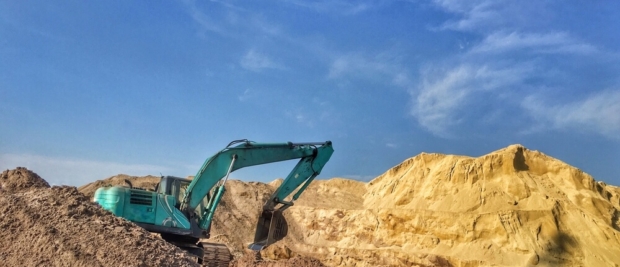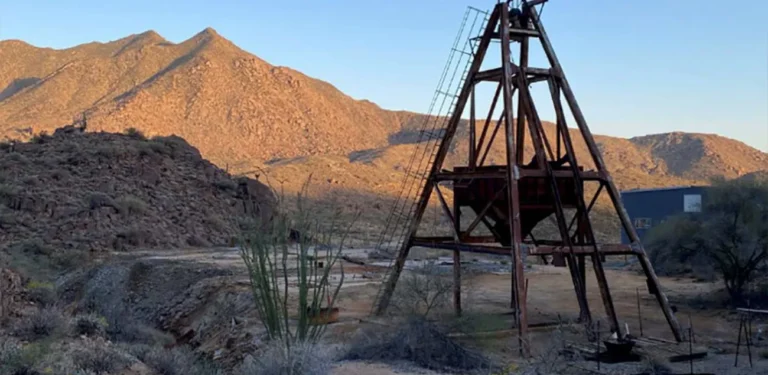
Indonesia changes taxation on mineral extraction
The Indonesian government has introduced a new approach to mineral extraction taxation, now tying royalty rates to market prices. This system, which is expected to come into force soon, replaces the previous fixed rate for nickel ore mining with a sliding scale ranging from 14% to 19%, depending on price indicators set by the authorities. For ores that do not meet certain quality thresholds, a reduced royalty rate of 2% will apply, provided the material is processed into battery-grade nickel. The document also establishes lower-than-expected royalty rates for nickel matte and ferronickel, following discussions with representatives from Indonesia’s nickel sector. During public consultations, industry participants raised concerns about the effects of the new taxation model on the profitability of mining and metallurgical operations, especially in light of declining nickel prices on the global market.
These changes are part of a broader economic policy under President Prabowo Subianto, who aims to increase tax revenues to support initiatives such as free school meals. As a result, the government is seeking new sources of funding, with mineral extraction taxes seen as a significant contributor to the national budget. The move to increase royalty rates has, however, been met with criticism from industry organizations. In March, the Indonesian Mining Association urged the government to reconsider, citing a shortage of high-quality ore, rising operational expenses, and reduced company revenues. Global nickel prices have recently fallen from $16,700 to $14,100 per tonne, exacerbating concerns within the sector.
Zijin Mining Group aims for leadership in the gold market
Zijin Mining Group of China has finalized its purchase of the Akyem gold mine in Ghana, elevating its position in the global gold sector from thirteenth to sixth place since 2019. This acquisition expands Zijin’s mineral resource base and operational capabilities, providing a platform for further international growth. While Zijin has traditionally focused on non-ferrous metals such as copper, lead, and zinc, it has diversified its assets in recent years by acquiring companies involved in lithium and gold mining.
Zijin plans to begin lithium ore extraction at the Manono deposit in the Democratic Republic of the Congo in 2026, marking the country’s first lithium mine. Tin was previously mined at Manono until operations ceased in 1982. The deposit, identified by Australian company AVZ Minerals, is estimated to contain 1–1.2 billion tonnes of ore with lithium oxide concentrations of 1.25–1.5%. AVZ Minerals lost its license in September 2023, after failing to secure financing following a sharp drop in lithium prices in 2022, and the license was transferred to Zijin.
In the gold sector, Zijin has set a target of producing at least 100 tonnes annually by 2028. The Akyem acquisition comes as gold prices have surged to $3,500 per troy ounce. In the first quarter of 2025, Zijin reported a net profit of $1.4 billion, a 62% increase, driven by heightened global demand for gold from both private and institutional investors amid economic uncertainty and ongoing trade tensions between the United States, China, and the European Union.
MP Materials has stopped supplying rare earth raw materials to China
MP Materials, the only company currently mining rare earths in the United States, has halted shipments of concentrate to China. This decision follows new Chinese government measures that tighten foreign trade controls, including a 125% import duty on rare earth raw materials from the US and restrictions on exports of seven rare earth metals and their derivatives. These metals are critical for industries such as defense, electronics, and renewable energy, and the restrictions are expected to disrupt global supply chains for products like high-strength magnets and jet engine coatings.
MP Materials has determined that exporting concentrate to China is no longer commercially viable or aligned with US national interests, and is now stockpiling material to supply its expanded domestic processing plant. The trade dispute follows earlier actions by China in response to US tariffs, which included export restrictions on samarium, gadolinium, terbium, dysprosium, lutetium, scandium, and yttrium. China has justified these controls by citing the dual-use nature of these metals, which can be used in weapons production.
In 2024, the United States produced only 1,300 tonnes of pure rare earths, with most mined ore previously exported to China for processing. China, in turn, produced about 300,000 tonnes of rare earths, supplying various countries, including the US. Rare earths are used in a range of applications, from infrared-transmitting glass and oil refining catalysts to pigments, paints, gas absorbers, and alloying agents. Elements such as neodymium, samarium, and europium are vital for manufacturing high-power permanent magnets used in electric motors, wind turbines, and computer equipment.
Arverne Group is building France's first lithium plant
In France, Arverne Group has begun constructing an experimental facility to extract lithium from geothermal waters in the Lower Rhine basin. The project, initiated in 2024, began with research supported by BPI France, a joint program of the French government and the European Union. The plant’s technological equipment was developed in partnership with DG SKID.
Pierre Brossol, founder of Arverne Group, described the construction and commissioning of the pilot plant as a major step forward. The company aims to extract up to 27,000 tonnes of lithium annually from underground brines and generate up to 4 TWh of geothermal energy by 2031. Similarly, Australian company Vulcan Energy is pursuing lithium extraction from geothermal waters in Germany and has already secured supply contracts with major European automakers, including Volkswagen, Stellantis, and Renault. Vulcan Energy plans to complete a plant by the end of 2026 capable of producing 24,000 tonnes of lithium hydroxide per year, enough for 500,000 electric vehicles annually.
The European Commission’s Critical Raw Materials Act, adopted in 2023, supports lithium extraction projects, making initiatives like those of Arverne and Vulcan eligible for incentives. These projects are expected to help reduce the European Union’s dependence on lithium imports from China.
Eurasian Resources Group attracts American investor
James Cameron, an American businessman and former chairman of Petropavlovsk, has formally offered to acquire 100% of Eurasian Resources Group for $5 billion. Cameron’s proposal, submitted to the company’s board of directors, outlines a financing plan involving personal funds, equity from American partners, and potential investment from Australia and the Middle East.
Eurasian Resources Group operates in the production of aluminium, copper, and cobalt, with assets including Aluminium of Kazakhstan, the Kazakhstan Electrolysis Plant, and Metakol. Metakol suspended cobalt exports in March after the Congolese government imposed a four-month export ban. The Kazakh government holds a 40% stake in Eurasian Resources Group, with the remainder owned by private investors.
Negotiations between Cameron and Eurasian Resources Group have been ongoing since late 2023, with Goldman Sachs participating as a financial advisor. If completed, the transaction would be the largest private acquisition in Kazakhstan’s mining sector in a decade and could mark the beginning of a new investment cycle in Central Asia, driven by growing demand for critical minerals and resources linked to the green economy. However, there are currently no confirmed details about the outcome of the talks. Shukhrat Ibragimov, chairman and chief executive officer of Eurasian Resources Group, has stated that no sale discussions are underway, and the Kazakh government has confirmed it does not intend to sell its 40% holding.



